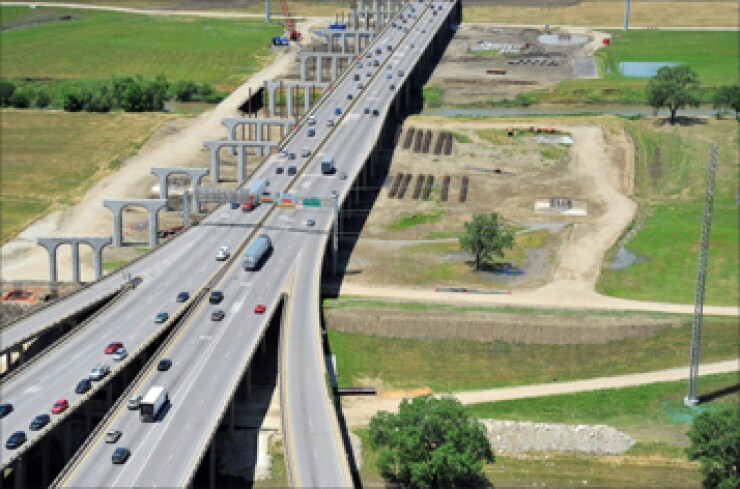
DALLAS -- Transportation advocates want to put the kibosh on congressional proposals to slash the federal gasoline tax and turn over almost all highway funding to the states.
A letter sent to lawmakers last week by a coalition of groups said bills proposing this devolution are ill-conceived and "would virtually eliminate the federal government's constitutionally-mandated role in promoting interstate commerce."
Identical bills, both of which were called The Transportation Empowerment Act and proposed the federal-to-state shift in transportation funding, were introduced in the House (HR 3486) and Senate (S. 1702) last November. The House measure introduced by Rep. Tom Graves, R-Ga., has 54 co-sponsors while the Senate bill introduced by Sen. Mike Lee, R-Utah, has six co-sponsors.
The legislation is unlikely to pass in the few days left in the 113th Congress, but supporters said they will revive the measure when the new 114th Congress convenes in January.
The bills would reduce the federal gasoline tax over five years to 3.7 cents per gallon from the current 18.4 cents and lower the federal diesel tax from 24.4 cents per gallon to 5 cents over the same period. They also would order the Transportation Department to redirect the 16% of federal fuel tax revenues now allocated for public transit back to highway spending.
Groups endorsing the opposition letter include the American Association of State Highway and Transportation Officials, U.S. Chamber of Commerce, American Society of Civil Engineers, and several highway contractor and equipment associations.
Devolution proposals are a distraction in the debate on how to fund transportation infrastructure rather than a solution, the group said.
"Congress must act now to avoid prolonging the ongoing funding crisis that is the result of failure to provide long-term, stable funding for transportation," it said. "We urge you to oppose devolution of the surface transportation program and refrain from sponsoring TEA or other similarly misguided legislation."
Eliminating the federal role in transportation infrastructure funding would hurt state highway programs but would especially harm rural states that depend on interstate highways for mobility, the group said.
"Devolution would prove disastrous to state and local governments' ability to maintain and improve their transportation systems when it is widely acknowledged that current resources are seriously insufficient," it said.
The coalition also implored Congress to adopt a multi-year, fully funded transportation bill before the current stop-gap measure expires at the end of May 2015. The $10.8 billion temporary measure signed into law in early August extended the two-year highway bill passed in 2012, Moving Ahead for Progress in the 21st Century or MAP-21, through May 31, 2015.
"We request that you instead work toward a reformed surface transportation bill with the goal of passing long-term legislation before expiration of MAP-21 in May," it said.
The devolution proposal has little support in Congress, said Jim Tymon, AASHTO director of management and program financing, at a toll road conference in Austin last week.
The Senate decisively rejected Lee's devolution amendment to the highway fund extension bill it approved in late July, Tymon noted.
"Devolution has the same low level of support as it has always had," Tymon said at the annual conference of the International Bridge, Tunnel & Turnpike Association. "It's not enough to move the needle, I hope. Devolution gets a lot of attention but doesn't have much support in Congress or among the public."





